 Community animal health workers like Ahmet Mahmoud Habib in Fafan zone are able to treat most sick animals.
Kelley Lynch
Community animal health workers like Ahmet Mahmoud Habib in Fafan zone are able to treat most sick animals.
Kelley Lynch
 Community animal health workers like Ahmet Mahmoud Habib in Fafan zone are able to treat most sick animals.
Kelley Lynch
Community animal health workers like Ahmet Mahmoud Habib in Fafan zone are able to treat most sick animals.
Kelley Lynch
Ethiopia is home to 10 million pastoralists. Living in mostly dry, lowland areas, they traverse the countryside seeking suitable grazing lands for their livestock.
For pastoralist households, the health of their livestock determines the well-being of their families. If meat and milk yields are good, they can sell their surplus and use the income to take care of their families and their animals. Pastoralists can even save and get ahead during good years.
Unfortunately for Ethiopia’s pastoralists, changing weather patterns have led to greater unpredictability in the seasons and more stress on families. Rainy seasons no longer follow the predictable timing Ethiopians have long relied on. As recently as 2000, 80 percent of Ethiopia’s livestock died when the rains didn’t come. Again this year, owing to El Nino, the major rains did not come.
Efforts by USAID, the Government of Ethiopia and other donors have helped improve resilience since 2000, but pastoralists still remain vulnerable.
Together with Mercy Corps and other international and local development partners, USAID introduced the Pastoralist Areas Resilience Improvement through Market Expansion (PRIME) activity. It builds resilience by creating economic opportunities through long-term investments, providing ways for pastoralists with viable livestock operations to mitigate and adapt to climate change, while helping pastoralists who always struggle to get by to transition to other sustainable livelihoods.
Taking Steps to Build Resilience
For all the advances of modern science, experts haven’t come up with a way to provide rain for pastoralists when they need it.
As such, PRIME helps farmers with livestock become more resilient to shocks. It also supports better management of existing water resources through more efficient rain harvesting techniques, better early warning systems and information sharing, and improved governance of communal lands and water spots. By improving linkages in the livestock value chain, PRIME also helps ensure profitable outlets for livestock sales when there is not enough feed available to support existing herd sizes. Pastoralists account for 95 percent of Ethiopia’s $220 million worth of meat and livestock exports.
The health and productivity of pastoralists’ livestock is also severely affected when they lack access to quality pharmaceuticals and animal health services. Private veterinary pharmacies are few and far between, leading to a weak pharmaceutical distribution network. And the limited numbers of community animal health workers contribute to the problem.
In the 1970s, Ethiopia was in the midst of a severe shortage of qualified community-based health workers, which made follow-up and control of disease outbreaks difficult. Since then, several NGOs and development partners, including USAID, have supported the expansion of these service providers. Over the years, community animal health workers have significantly improved animal health in areas where professional providers are thinly spread. These workers have provided valuable services to pastoralists, including: curative treatments using antibiotics and injectable drugs, vaccination campaigns, deworming for internal parasitism treatments, spraying for external parasitism treatments, minor surgical treatments, dehorning and castration.
To address this, the project made grants available to private veterinary pharmacies—with an average grant amount of $5,600—to expand their businesses in rural areas. Through these grants, USAID contributes 30 to 50 percent of the expansion cost, while the pharmacy owner pays the remaining cost. By sharing the risks associated with new market entry and expansion, USAID is creating a pathway to profitability and growth, and incentive for other investors to enter the market. Pharmacy owners say they are very excited about this opportunity.
USAID is also helping animal health workers refine their list of services to fit pastoralists’ needs and then market those services through face-to-face communication within their communities. Their ability to get their messages across comes with better skills for disease identification and treatment. Community animal health workers were also connected with the network of pharmacies to familiarize them with the wide range of pharmaceutical products available. To date, PRIME has provided training for almost 300 community animal health workers and linked them with 22 private veterinary pharmacies.
Geremew Derebe was skeptical about setting up veterinary pharmacies in rural areas, but when USAID offered to cover 30 percent of his pharmacy expansion, he decided it was worth the risk of applying for a grant. Geremew used the money in July 2014 to open a new pharmacy in a rural area of Oromia regional state approximately 30 kilometers from his pharmacy in the town of Moyale.
Today, his new pharmacy serves 5,000 pastoralists who previously did not have easy access to quality, safe and affordable drugs to keep their livestock healthy.
“I’m famous around here and people come to me to seek advice,” he says. “For me, that is the most satisfying thing.”
Geremew knows that his drugs contribute to the productivity of animals in this area, and his return on investment from the expansion exceeded his expectations. His monthly revenue from the new pharmacy has reached approximately $2,000 a month, and his dream is to use this money to expand to areas that are even more remote.
He now knows that pastoralists in this area are willing to invest in their animals’ health when they have access to quality inputs. Encouraged by the expansion, Geremew wants to open more pharmacies soon.
Chukulo Bekere, one of Geremew’s customers at the new pharmacy, says: “Just a year ago, residents in the kebele [community] lost 10 cattle to a disease. Today, we are not afraid of losing our animals to diseases and our cattle give us more milk. The price we pay for drugs is nothing compared to our loss from animal diseases.”
Today, pharmacies pass vital information to animal health workers on available medications and disease management, who in turn use it to provide better services to pastoralists. The veterinary pharmacies now sell medications to the animal health workers on credit, enabling them to keep sufficient supplies on hand when out in the field.
Golicha Abduba, a community animal health worker in Medo kebele in Moyale, Oromia, now earns $75 a month. Previously, he earned less than $50 per month and only when he provided vaccinations following outbreaks of disease. “My service earned me respect from the community I serve. I’m saving animal lives and making a respectable income for myself,” Golicha says proudly.
Ahmed Mohammed, another community animal health worker in Ethiopia’s Somali region, says the training and the link with the veterinary pharmacies changed the way he does business. Training focused on diagnosing animal diseases, community mobilization, livestock disease incidence, morbidity, mortality and sustainable community animal health is important not only to keep animals alive, but also to make them healthier and more productive. “Today, the health of our animals is in our hands,” he said.
After only two years, these interventions are already showing some encouraging results in improving animal health and increasing the milk and meat the animals provide. Private veterinary pharmacies have opened branches in previously unserved rural areas. Healthier animals mean more milk and improved nutrition for pastoralist families.
“Even in the most complex environments, if market systems are supported to overcome key bottlenecks, private sector actors will respond to opportunities and incentives to bring transformative changes to the market systems that work for the poor and vulnerable households in pastoralist areas of Ethiopia,” said USAID/Ethiopia Mission Director Dennis Weller. “PRIME was designed to help pastoral communities achieve viable and sustainable livelihoods and contribute to the overall growth and transformation of Ethiopia through Feed the Future and climate change adaptation facilities.”
Yenew Berhan manages communications and Fekadu Wolde monitors activities and outcomes for USAID’s Pastoralist Areas Resilience Improvement through Market Expansion project.







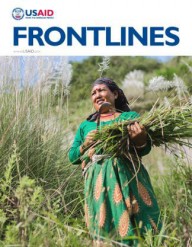

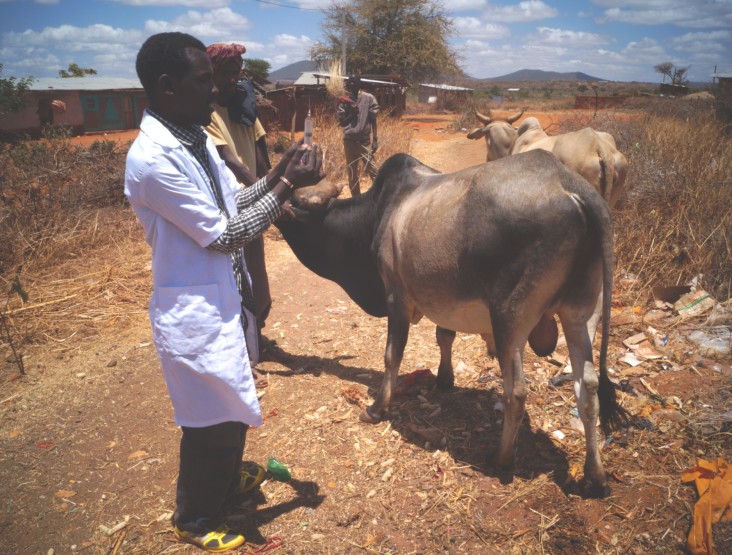
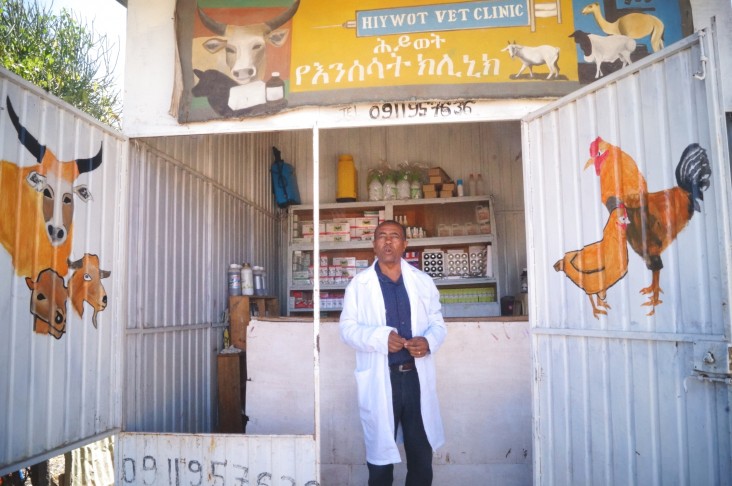
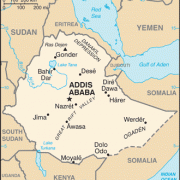
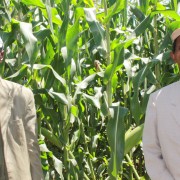

Comment
Make a general inquiry or suggest an improvement.